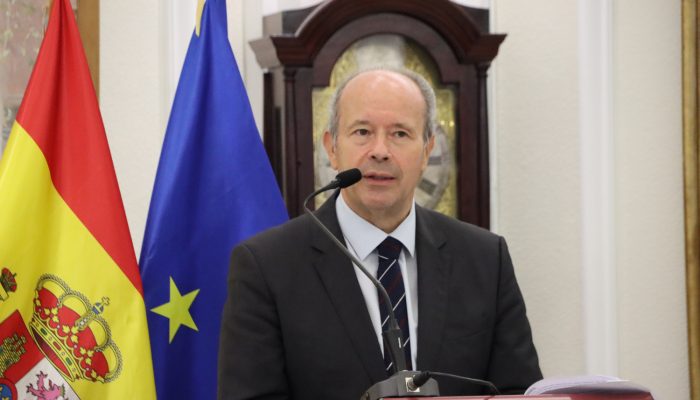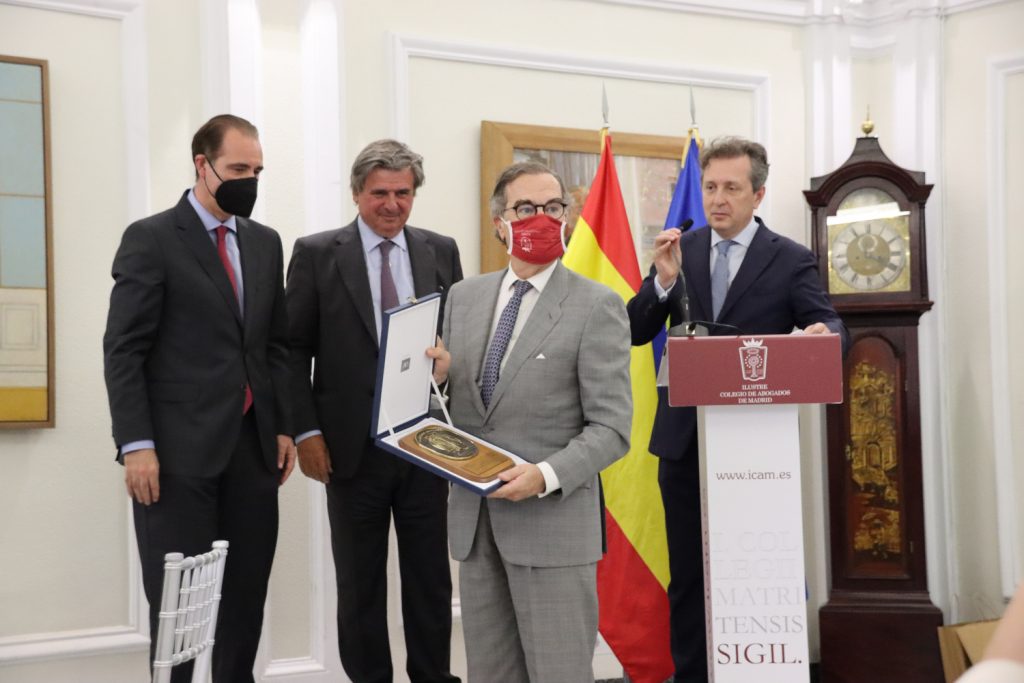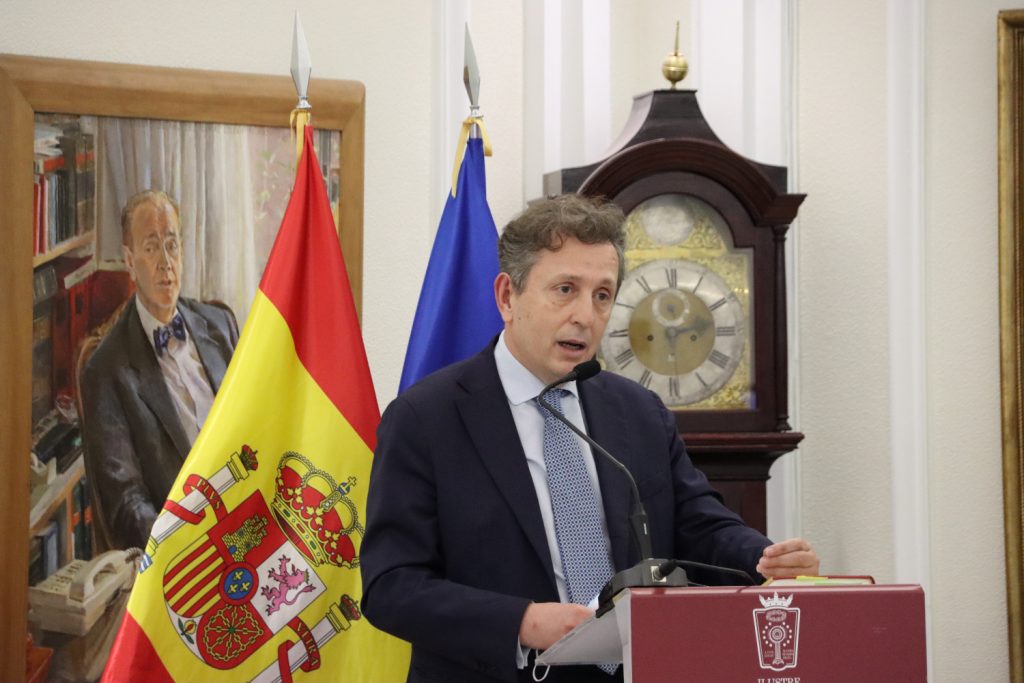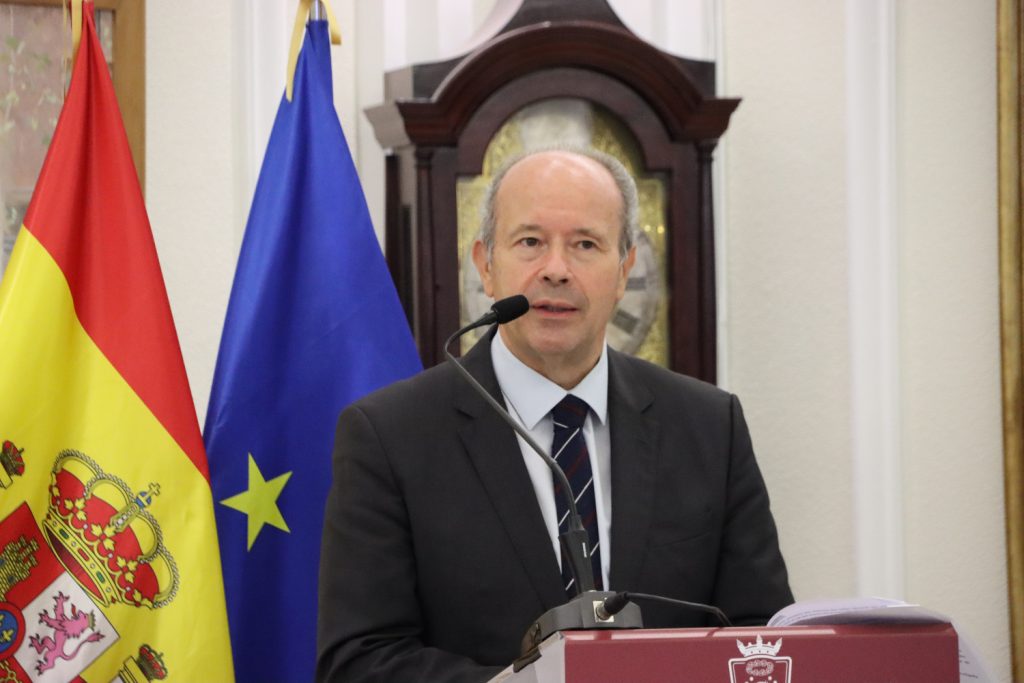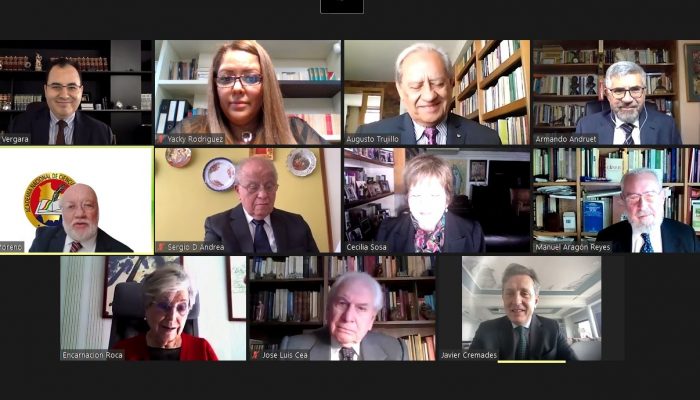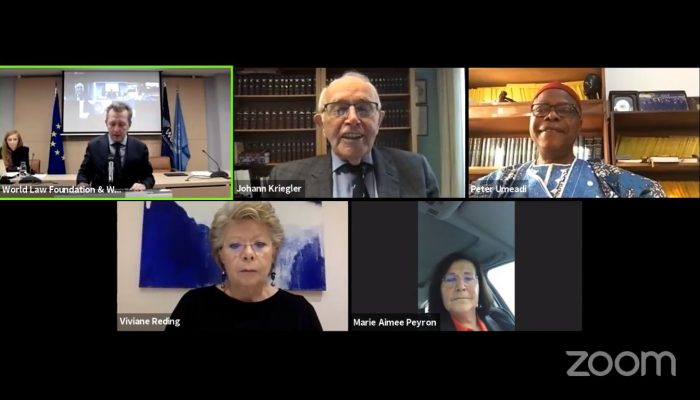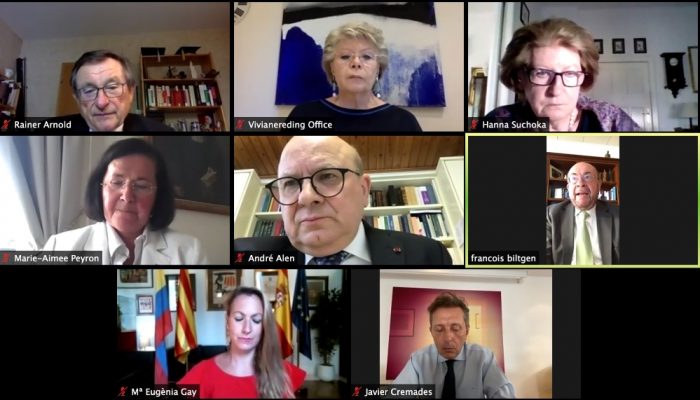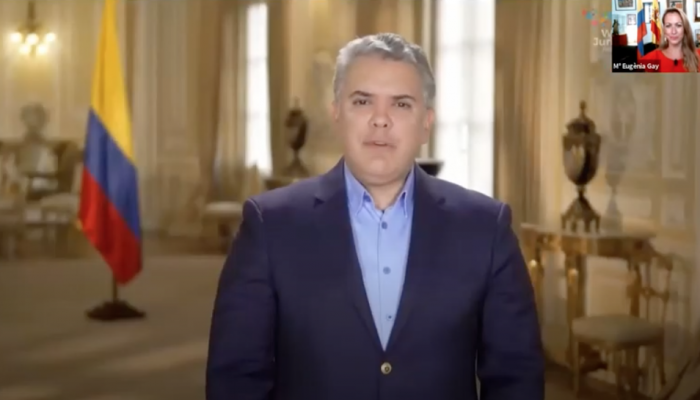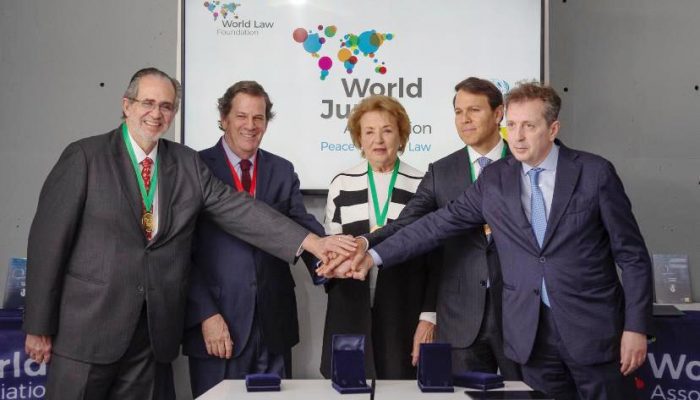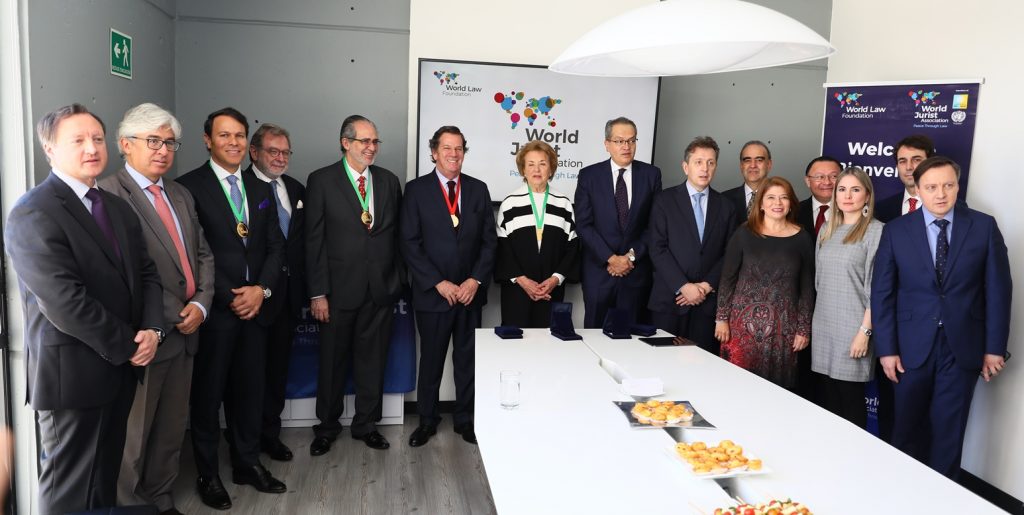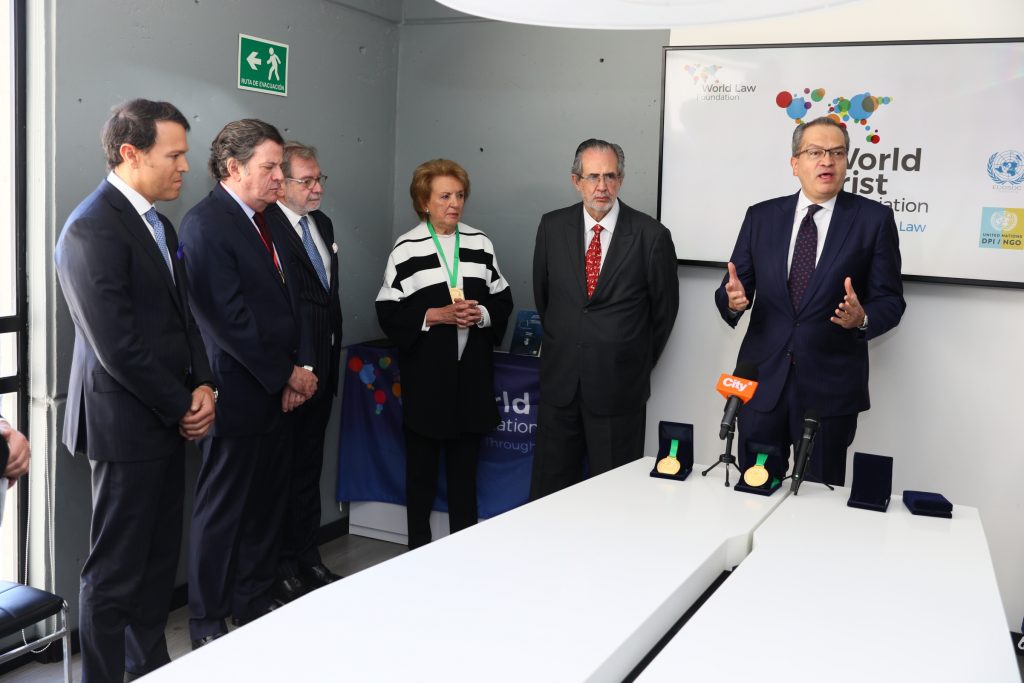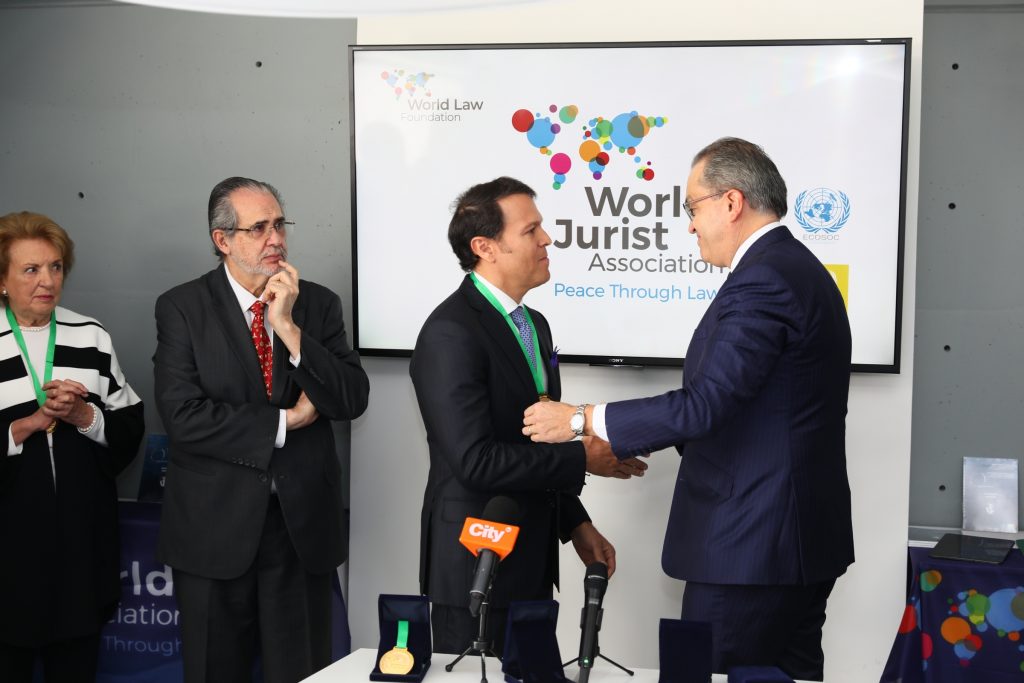>> The meeting was attended by the Minister of Justice of Spain, the Colombian Ambassador to Spain, the former president and current judge of the Inter-American Court of Human Rights, Eduardo Ferrer, and the 50 most important law firms with presence in Spain
The Madrid Bar Association (ICAM) hosted a lunch with representatives of legal institutions and law firms convened by the World Jurist Association (WJA). During such, the program of the Opening Session Bogotá-Madrid of the World Law Congress Colombia 2021 was presented, which will be held during July 5 and 6 in Madrid. This lunch was attended by the President of the Constitutional Court of Spain, Juan José González Rivas, the Minister of Justice of Spain, Juan Carlos Campo, the Colombian Ambassador to Spain, Luis Guillermo Plata, the judge of the Inter-American Court of Human Rights, Eduardo Ferrer Mac-Gregor, the president of the General Council of Spanish Lawyers, Victoria Ortega, the dean of ICAM, José María Alonso, and the vice president of the Mutual Fund for Lawyers, Joaquín García-Romanillos.
During the opening speech, José María Alonso acknowledged that the hosting of this event is “a joint project to promote the Spanish and Ibero-American legal world beyond our borders.” The Dean pointed out the importance of “being aware of our potential and to act in unison.” In this sense, he welcomed initiatives such as those of the World Jurist Association, “which has the objective of reinforcing and enlarging our presence in the world, as well as being a collective, supportive and inclusive project.”
For his part, Javier Cremades, president of the WJA, underlined the association’s special defense of the rule of law and explained that in the world “there are profound processes of distortion and falsification of the rule of law within our democracies; alerts that exist in many countries and show that the rule of law must be taken care of so that more and more people take shelter under it”, recalling “the need for life to occur under the rule of the law ”.
Let us remember that the World Law Congress brings together prestigious presidents of courts, magistrates, government officials, academics, lawyers, students and legal professionals from around the world, who discuss defense issues of the rule of law as a warrantor of freedom. The last edition, held in Madrid in 2019, brought together more than 2,000 jurists, a framework in which the WJA awarded King Felipe VI with the World Peace & Liberty Award.
The next edition of the World Law Congress, which will be held in Colombia, on December 2 and 3, 2021, has held Opening Sessions from different cities around the world over the course of a year, with the Opening Session Bogotá-Madrid being the most powerful of all, as an allegory to the delivery of the witness from one country to the other.
Ambassador Luis Guillermo Plata expressed the suitability of holding the Congress at a time like the one Colombia is going through. He highlighted the values promoted by this event and the message it conveys, since “Colombia is a country where we must talk about freedom, democracy and rights, but all within the framework of the law.”
The Minister of Justice of Spain, who participated in the inauguration of the opening sessions in Barcelona in July 2020, congratulated the World Jurist Association for having references from the international legal sphere, and has recognized that this event “represents an extraordinary opportunity to strengthen international legal cooperation”.
For his part, the president of the Constitutional Court of Spain expressed his wish that the celebration of the Opening Session Bogotá-Madrid and the congress in Colombia “be moments of deepening on the values of the rule of law.”
Eduardo Ferrer Mac-Gregor, Judge of the Inter-American Court of Human Rights, Trustee of the World Law Foundation and member of its Organizing Committee, presented the content of the Opening Session Bogotá-Madrid program. On July 5, he highlighted the holding of an unprecedented panel discussion on gender equality and the rule of law, made up by presidents and judges of the world’s most important supranational courts, who will meet for the first time in history. Similarly, tribute will be paid to the recently deceased Justice of the Supreme Court of the United States, Ruth Bader Ginsburg, the last recipient of the World Peace & Liberty Award in 2020, and the Ruth Bader Ginsburg Medals of Honor. Ginsburg of the WJA to the world’s leading women jurists will be presented in her honor.
For its part, on July 6 there will be a summit of presidents of the supreme and constitutional courts of Europe and the Americas, which will also have presidents of different institutions related to the Judiciary and the presidents of the bars of the Mexican legal profession, with aim to discuss the rule of law.
Al finalizar el acto se entregaron placas conmemorativas a José María Alonso , Decano del ICAM, Luis de Carlos , Patrono de la World Law Foundation y Presidente de Uría Menéndez, Pedro Pérez Llorca ¸ Socio Director de Pérez-Llorca, Carlos Rueda , Socio Director de Gómez-Acebo y Pombo, y Fernando Bautista , Socio Director de Bautista & Asociados. Un reconocimiento a su permanente y necesaria colaboración con el éxito del World Law Congress Madrid 2019.

